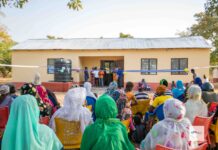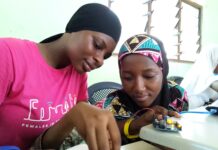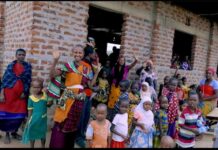In the early 2000s, coupons were a big thing. Organizations and churches were used to giving out this cheque-like paper to their members for public fundraising. Today, the coupon mechanism has not changed that much. You might have received a broadcast from friends or even a stranger requesting donations to support their projects. On social media, you might find celebrities, bloggers, influencers, and founders soliciting funds on behalf of people or a project. This is what I call coupon fundraising. Coupon fundraising exists, but in its coolest form called crowdfunding.
A study by NCVO Ghana in 2020 showed that Nonprofit organizations in Ghana heavily depended on crowdfunding backed by foreign donors, international grants as well as corporate sponsorships. And, many were bankrolled by their founders or family members when attempts to do the above failed.

But The Future is Uncertain
Throughout history, crowdfunding has been a trademark fundraising scheme in Africa and very evident in our extended family system. During emergencies, family members pool resources from sympathizers. In the nonprofit sector, it has been a cushion for many organizations until recently.
The recent COVID-19 pandemic hugely affected nonprofit fundraising in Africa due to lockdowns and it is projected to continue due to the rising global polycrisis. In 2020, EPIC-Africa surveyed 1,015 civil society organizations (CSOs) from 44 African countries about the impact of the pandemic on their funding and operations. They discovered that 56% of respondents had lost funding and 46% had been informed by their funders that COVID-19 might impact their ability to offer continual support.
Today, individual foreign donors who typically back crowdfunding campaigns are also under a lot of financial constraints due to the seemingly never-ending global economic crisis, and this trend will have a big impact on charitable giving in Africa.
The future is uncertain hence non-profit organizations would need to quickly adopt local revenue mobilization mechanisms to gather momentum. But, local fundraising is hard, and in Ghana, it will be harder. Currency depreciation and high inflation have driven up the cost of living; putting considerable strain on household and corporate budgets. The World Bank predicts that Ghana may witness further currency depreciation and private investments may be discouraged.
Can local revenue mobilization sustain nonprofits in the midst of this crisis? For how long? And, will it be enough?
The Bigger Problem
“Concerning individual giving to NGOs, those opportunities are limited. In Ghana, people are earning peanuts and are preoccupied with their own survival, so the idea of benevolence or giving is not there because people don’t have the resources. I don’t see opportunities like individual giving to NGOs in Ghana. Maybe in the future, but not now” – (Interview, 18 April 2016, Tamale) as read in Kumi(2019).
Ghana’s inflation rate in 2016 stood at 15.4% against 37.2% today. Hence, If the idea of local revenue mobilization was challenging in 2016, then it will be 2x challenging today. The discrepancy between these rates presents an ill future for local revenue mobilization.
On the other hand, I see local revenue mobilization to be mutually exclusive to the majority of young people who might be leading several nonprofit organizations in Ghana. Local revenue mobilization is typically influenced mainly by one’s social network, reciprocity, and mutual assistance since social relations and norms of exchange or counter-obligation are valued in African societies. This makes the sector less inclusive for young people (from ordinary backgrounds) who might not have massive social networks.
Another issue with local revenue mobilization is what I call the ‘ill characterization’. A study by British Council Ghana observed from a range of stakeholders a negative attitude towards NGOs; a perception that they have done little for Ghana’s people; and worse – that many of them are not attempting to but are set up purely for personal enrichment.
While this is a valid concern, it cannot be entirely accepted as accurate due to a lack of empirical data. According to Kumi (2019), such perceptions can be attributed to the informal nature of giving among Ghanaians. The informal nature of giving in the nonprofit sector means there isn’t any form of record keeping, metrics, or standards set and enforced to enhance accountability and transparency. This gap has attracted non-genuine actors into the space and gradually driving away local support. In recent observations, banks and other corporate bodies that were primary donors to NPOs are no longer relying on nonprofit organizations to fulfill their corporate social responsibilities. Instead, they are establishing philanthropic arms through which they undertake various social programs in addition to their core business (Dalberg, 2011).
Way Forward
The era of coupon funding is proving futile. The donor-based funding mechanism of traditional nonprofits is unsustainable, especially in the post-COVID-19 world, and alternative models like social enterprising and founders setting up subsidiary skill-based businesses show a lot of promise.
To scale up impact, nonprofit organizations must deliberately be supported to develop sustainable enterprising models else they will die and grassroots support and innovation will be lost.
This is not to say that the typical donation-based model is dead but, those that will succeed will need to be more targeted, patient, and tactful.
Additional comment: Funding for social enterprises is growing in Africa, especially across the Agriculture value chain.
Written by Nathaniel Opoku






















